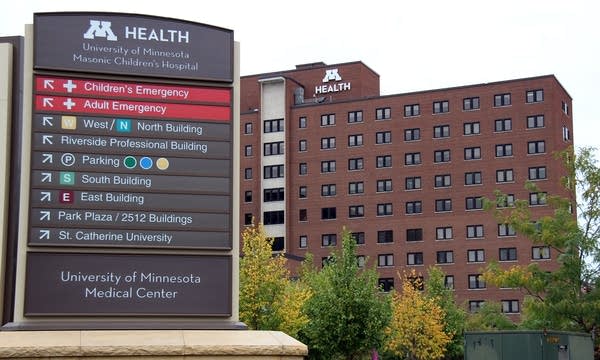As health care workers prepare for COVID-19, medical students pitch in on the home front
‘We also are hungry to help,’ says one U of M student who has been organizing volunteer shifts for babysitting, dog-walking, and grocery shopping. ‘This is what we signed up for.’

The University of Minnesota Medical Center in Minneapolis.
Mark Zdechlik | MPR News 2015
Go Deeper.
Create an account or log in to save stories.
Like this?
Thanks for liking this story! We have added it to a list of your favorite stories.


